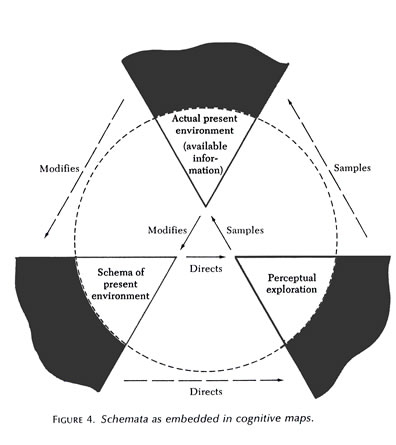
PSY 8210Cognition & Reality: Paradigms in Experimental PsychologyThe goal of this course is to introduce the students to alternative “paradigms” or general approaches to experimental psychology. The term paradigm refers here to the “conventional” rules of science: sets of shared beliefs that guide researchers in terms of the questions to be asked, the methods used to answer these questions, and the interpretation of experimental results. In the late 50’s the field of experimental psychology began a paradigmatic shift from behaviorism to information processing. It is probably true that information processing is still the dominant paradigm in psychology today. In the mid to late 60’s an alternative paridigm was developed by J.J. Gibson. The “Ecological”, or “Gibsonian” paradigm maintains a very different set of conventional beliefs. It is essentially an anti-reductionistic approach that emphasizes the need to understand the complex information that is there to be perceived (i.e., the ecology) as well as the interaction between the observer and the ecology (i.e., the percpetion-action loop). The simple example of navigation through the natural environment will be used to illustrate some of Gibson’s concepts. The “ambient optical array” is specified by (and corresponds to) the structure of the natural environment. The actions performed by an agent (i.e., re-orientation of the eyes, turning of the head, ambulation) produce systematic transformations of the optical array that are referred to as “optical invariants” (e.g., optical flow). The brain “resonates” to this information; the information is “obtained” or “picked up.” This, in turn, provides “affordances” or possibilities for action by the agent. The agent coordinates and adjusts his/her actions based on feedback obtained from the continuous, space-time signals that arise from (and are specific to) the combination of structure in the environment and observer action. This course provides a crucial foundation for effective display and interface design. Although the ecological approach may not yet be the dominant paradigm in psychology, it lends itself particularly well to issues in interface and display design. In fact, Cognitive Systems Engineering and Ecological Interface Design have been described as “ecologically” inspired; Gibson’s work has provided valuable insights for interface design. (see the Psy. 625 course description). We examine the information processing approach and its paradigmatic assumptions and commitments during the first third of the course. The examination and analysis of the ecological approach (and comparing/contrasting it to information processing) requires half of the course. The remaining time is spent examining an approach that attempts to reconcile these two approaches (Neisser). © Kevin B. Bennett, all rights reserved phone: 937-775-2444 |
|
|

